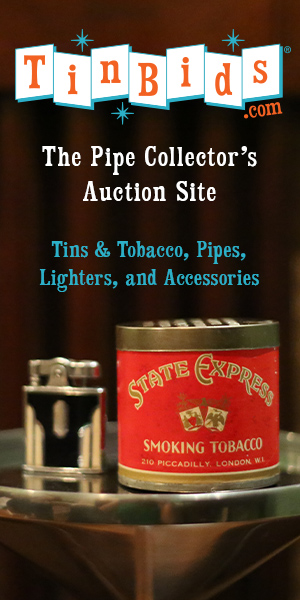When it comes to the STG rant, I understand the gloom, but I'd like to offer the doom a counterpoint. There's nothing worse than a legendary or historic brand taking a turn for the worst, and it's exactly what Mac Baren was set to do after the death of HH. They canned Per Jensen, had plans to back off the pipe tobacco market, and in general they were headed down a path of roll-your-own quantity as opposed to their historic demands for quality. As much as it sucks that they got gobbled up, it would've been worse to watch their reputation descend to that of a shit product.
Louis C. K. once joked that whenever someone told him they were getting a divorce, he congratulated them. Bewildered, they'd ask why he'd congratulate such a thing and he'd respond that he never knew anybody who, in the midst of a happy marriage, decided to call it quits. Selling a company is much the same.
STG already handles the production of Escudo and Salty Dogs and a slew of other tobaccos that would rank in my favorites, your favorites, and most everyone else's too. Sutliff, on the other hand? That recent coin release was spectacular, but apart from that I've never heard of anyone evangelizing the leaves tinned by Henry Sutliff. Even still, STG can't afford to dismantle the historicity that exists in Mac Baren and Sutliff. If they now own two brands whose claims to fame last over a century apiece, then even the "bean counters" will understand the benefit of such an accolade.
Thanks to an untimely and unwelcome layoff in finance, I happened to work in the retail end of the beverage industry at the time the craft beer boom found its apex. The big guys began buying the more reputable craft establishments and it set the whole drinky drink community into an uproar - myself included. I hated the idea that these corporate behemoths were scooping up my beloved craft brands. Specifically, as a South Carolinian, I hated that this trend laid claim to some of my local favorites. Coors bought Terrapin (Athens, GA) and Wicked Weed (Asheville, NC) was gobbled up by Anheuser Busch.
I could've sworn at the time that this would be the end of my beloved local brands. What I didn't see at the time was that these behemoths had the one thing that the craft joints never did: money. Sure, several breweries acquired by the big guys turned to garbage. But at the same rate, brands like Terrapin and Wicked Weed happened to flourish because the influx of capital allowed them to explore the market in a way that was previously unforeseen. Did they have to release junk beers that appealed to the masses? Sure. But they were also granted the ability to dig deeper into the small-batch goodies that appealed to folks like me.
In my opinion, the key factor here is that Mac Baren and Sutliff were bastions of a small-fish market: pipe tobacco. As long as that remained the case, they'd remain beholden to the ebbs and flows of that already-insecure market. By being acquired by a cigar-owning company, it gives them security and longevity. Cigars have been more stable and lucrative than pipes for longer than I've been alive and that doesn't appear likely to change within my lifetime. Amid any bad news, that's still a good thing. Because if pipe tobacco goes the way of craft beer and finds a mechanism by which it might experience a boom, then they're already owned by a corporation who can siphon capital into them to take advantage of the moment.
Anywho, I've been ranting myself for far too long so I'll end on this point: Even John D. Rockefeller, in an age before laws would prevent actively sinister competition practices in order to absorb competitors, was unable to cement a full-blown monopoly on the oil market. Despite his excessive efforts, competitors still sprang up when the moments were right. Given that humans have been smoking tobacco for 10,000+ years (see Iain Gately's history of tobacco) it's unlikely that any corporation - sinister or not - can or would pull off an obliteration of the market.










